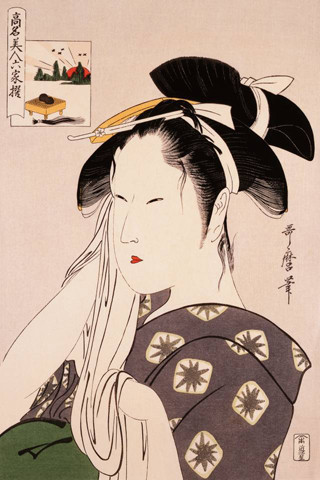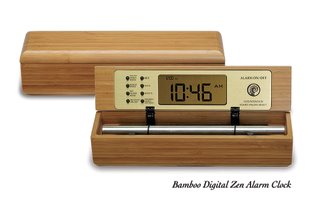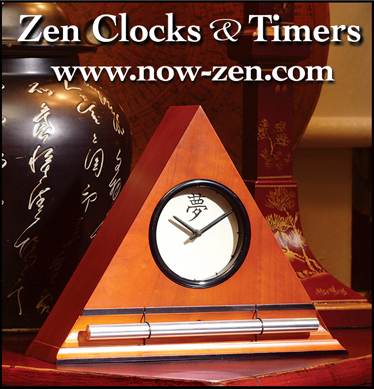
Meditation as a Transformation Tool - Ukiyo-e
Many moons ago, a wandering Nepalese prince sat under a tree, vowing not to rise until he attained enlightenment.
After a long night of deep meditation, Siddhartha Gautama, better known as the Buddha, saw the light and declared that suffering is subjective, and can be reduced through self-awareness.
Today, 2500 years later, a growing number of American doctors and healthcare workers are teaching people who are ill how to apply Buddha’s epiphany to their lives.
adapted from abcnews.com by By Ephrat Livni
In hospitals, businesses and community centers around the country, meditation is increasingly being offered as a method of stress reduction, and to help patients better cope with the physical pain and mental strain associated with many medical conditions, including heart disease and HIV infection.
Recent research shows meditation’s soothing effects can be detected in arterial walls and in the brain. Once considered outside the mainstream, today more insurers are paying for meditation, both as a form of medication and as preventive medicine.
Learning to ‘Disidentify’
“Meditation is the act of disidentifying from inner thought flow and concentrating on calming and healing,” explains Robert Thurman, Ph.D., a professor of Indo-Tibetan Buddhist Studies at Columbia University in New York and the first American to become a Tibetan Buddhist monk. Through meditation, doctors help patients detach from their pain and anxieties and cultivate a connection between the mind and the body, he says.

Gong Clock - Progressive, Soothing Tones to End Your Stillness Practice
While there are many kinds of meditation, the mindfulness approach, used widely in hospitals around the country, focuses primarily on breathing. Practices vary, but the basic idea involves sitting comfortably, with eyes closed, spine straight and attention focused on breathing.
Practitioners aim to maintain a detached, calm awareness of their thoughts and sensations. Through mindfulness, experts say, meditators learn to pay attention to the present and cultivate clarity of mind, equanimity and wisdom.
Minor Mindfulness Miracles
All of which may sound very abstract. Unless, points out Jeff Brantley, Ph.D, Director of the Mindfulness-based Stress Reduction (MBSR) Program at the Duke Center for Integrative Medicine in Durham, N.C., you are a patient who is suffering.
“We had one patient, a 40-year-old woman with metastatic breast cancer who was enrolled in the 8-week MBSR program. At her exit interview she said that before the course began 5 minutes wouldn’t go by without her worrying about what would become of her and her young family and now, after the class, she can concentrate on other things for more than hour at a time, even days,” Brantley says, calling the results “a minor miracle.”
The Duke program is one of at least 70 such mind-body based courses modeled on the University of Massachusetts Medical School’s Stress Reduction Clinic, in Worcester, Mass., created in 1979 by Dr. Jon Kabat-Zinn. Taught mainly in hospitals around the country, mindfulness training is typically run as an 8-week-long outpatient program to complement other medical treatments.
The aim, according to a website dedicated to Mindfulness-based Stress Reduction, is to assist people in taking better care of themselves “through a gentle but rigorous daily discipline of meditation and relaxation.”
Doctors refer patients to mindfulness programs for any number of diseases and disorders, including heart disease, anxiety and panic, job or family stress, chronic pain, cancer, HIV infection, AIDS, headaches, sleep disturbances, type A behavior, high blood pressure, fatigue and skin disorders.
In keeping with the growing interest in preventative medicine, some insurance companies, such as Blue Cross/Blue Shield in Massachusetts and a number of insurers in what Thurman calls “the more enlightened states like Oregon and California,” are now paying for all or part of these programs.
Research for Coverage

Meditation for Well-being, Choose a Soothing, Chime Timer
While the National Institutes of Health says it is too soon to quantify the medical benefits of meditation, Anita Greene, spokeswoman for the Institute’s Complementary and Alternative Medicine division, concedes, “It is a therapy worthy of further scientific investigation to refute or support the health claims being made.”
In fact, in 1999, the NIH granted Maharishi University of Management in Fairfield, Iowa, $8 million during a five-year period to study the effects of meditation in African Americans with cardiovascular diseases.
Researchers at Maharishi say that relaxing and reducing stress through transcendental meditation may reduce artery blockage and the risk of heart attack and stroke, according to a study released in the March issue of the American Heart Association’s journal Stroke (see related story).
Another recent pilot study, published in the May 15 issue of NeuroReport, by Sara Lazar, Ph.D., a Harvard research fellow in psychology at Massachusetts General Hospital, in Boston, suggests meditation activates specific regions of the brain that may influence heart and breathing rates. Using a brain imaging technique known as functional magnetic resonance imaging, or fMRI, Lazar measured blood flow changes in experienced meditators.
“What we found were striking changes. There was significant decrease in blood flow and activity in specific areas of the brain,” says the study’s senior author Dr. Herbert Benson, president of the Mind/Body Medical Institute at Beth Israel Deaconess Medical Center in Boston, Mass.
The usual, fight-or-flight brain response liberates adrenalin and is stressful to the body, he explains, but during meditation the brain acts to quiet the body through concentrated breathing or word repetition, evoking a relaxation response that minimizes the harmful effects of stress.
“It does away with the whole separation of mind and body and gives further proof to insurers that [meditation] is cost effective,” he says. Ultimately, Benson predicts, medicine will be akin to a three-legged stool, leaning on pharmaceuticals, surgeries and procedures, and self-care, which includes, meditation, nutrition, exercise and health management.
A Tool for Transformation
But, Thurman points out, meditation is for more than just health benefits: It is a tool for seeking inner transformation. Meditation practices in the health field are secular, however.

Gong Clock for Meditation and Yoga Practices
“We get everyone from born-again Christians to avowed atheists. We tell people we are not trying to make anyone into anything,” Duke’s Brantley reassures. No matter what their religious persuasion, he says, patients find an increased awareness and appreciation of their lives.
Registered nurse Shirley Gilloti, a San Rafael, Calif., health educator and mindfulness training teacher agrees, “I tell people to try to bring more mindfulness to saying their rosary if that’s what they do.”
Use our unique “Zen Clock” which functions as a Yoga & Meditation Timer. It features a long-resonating acoustic chime that brings your meditation or yoga session to a gradual close, preserving the environment of stillness while also acting as an effective time signal. Our Yoga Timer & Clock can be programmed to chime at the end of the meditation or yoga session or periodically throughout the session as a kind of sonic yantra. The beauty and functionality of the Zen Clock/Timer makes it a meditation tool that can actually help you “make time” for meditation in your life. Bring yourself back to balance.

Gong Clock & Timers by Now & Zen, Inc. - Boulder, CO
Now & Zen – The Gong Clock Shop
Downtown Boulder, CO
1638 Pearl Street
Boulder, CO 80302
(800) 779-6383
Orders@Now-Zen.com
Posted in Bamboo Chime Clocks, Yoga Timer, Yoga Timers by Now & Zen, Zen Alarm Clock, Zen Timepiece by Now & Zen